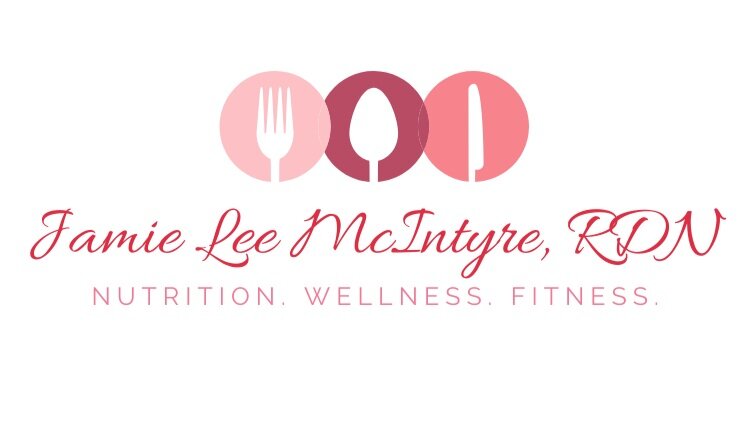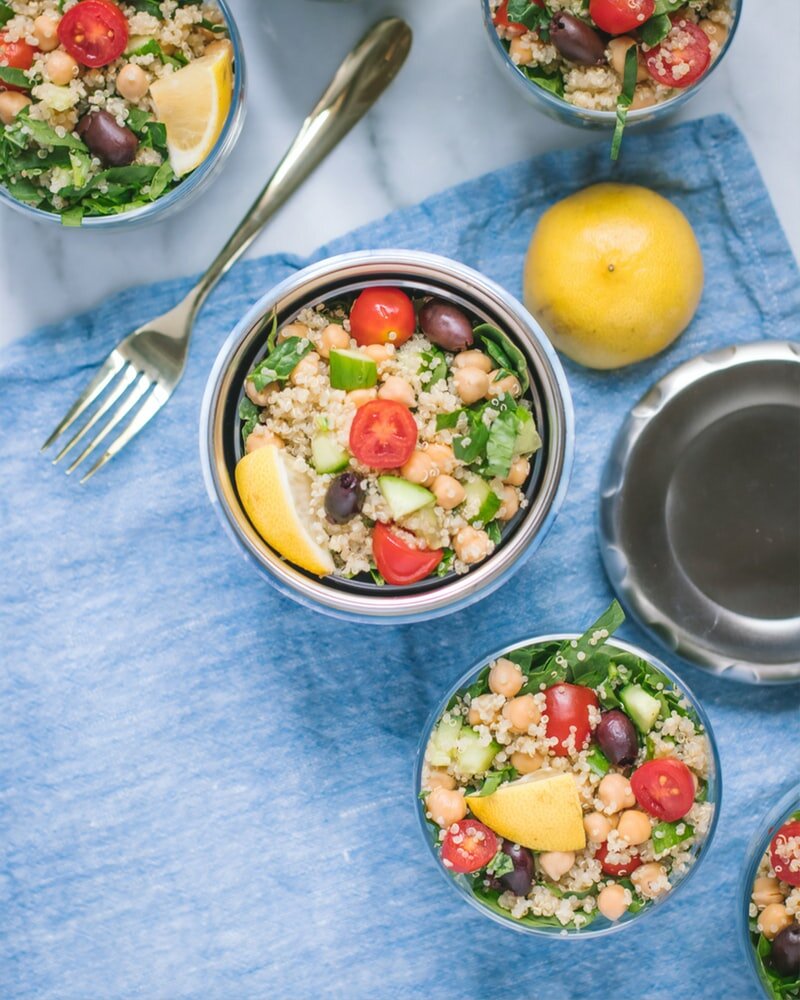How to Pack a Healthy and Tasty Lunch
Packing a lunch every day can feel repetitive—especially if your go-to is PB&J. Whether you’re filling a lunch box for yourself or for your kids, the goal is the same: a meal that’s delicious, balanced, and keeps you fueled through a busy afternoon of work, school, errands, and activities.
Here’s how to keep lunchtime fresh, nutritious, and something you actually look forward to.
Start with the Basics: Balance and Safety
✅ Aim for 3–4 food groups per meal: Include a mix of protein, whole grains, fruits, veggies, and dairy (or dairy alternatives).
✅ Pack 1–2 snacks: Choose foods with staying power, combining two food groups (like apple slices + nut butter).
✅ Practice food safety: Use a thermos for hot foods, and an insulated lunch bag with an ice pack to keep cold foods safe until lunchtime.
Healthy & Easy Lunch Ideas
1. Bowl Meals
“Bowl meals” are one of the easiest ways to pack a nutrient-dense lunch. Everything goes in one container for a quick grab-and-go option (and easy cleanup). Try this:
Quick Chicken & Rice Bowl
⅔ cup cooked brown rice
3 oz shredded chicken
⅓ cup black beans (drained and rinsed)
½ cup each chopped bell pepper and diced tomato
¼ cup chopped onion
Top with salsa, a dollop of plain Greek yogurt or light sour cream, fresh cilantro, and a sprinkle of chili powder (optional).
2. Leftovers (Your Easiest Lunch Hack)
Don’t overthink it—just pack what you made for dinner. Last night’s turkey Bolognese over whole-wheat pasta, veggie stir-fry, or grilled salmon with quinoa works perfectly.
Tip: If you don’t have a microwave at work or school, heat your food in the morning and pack it in a thermos to stay warm until lunch.
3. Bento Boxes for Variety
If you like to graze—or aren’t sure what you’ll be in the mood for—try a bento box with 4–5 compartments. Fill each section with something from a different food group:
Protein: turkey roll-ups, hard-boiled eggs, edamame, tuna, chicken sausage
Grain: whole-wheat pita wedges, quinoa, brown rice, crackers, whole-wheat waffle
Veggies: baby carrots, cherry tomatoes, cucumber slices, snap peas, bell peppers
Fruit: grapes, apple slices, melon cubes, clementines, berries
Dairy: string cheese, Greek yogurt cup, cottage cheese
Add a small container of hummus, nut butter, or yogurt-based dip for dunking veggies or crackers.
4. Soup, Salad, and Sandwich Combos
You don’t have to reinvent the wheel—this classic combo still works. Pair half a sandwich with a cup of soup or a simple side salad.
Some pairings to try:
Tuna melt on whole-wheat bread + veggie soup
Turkey pita wrap with hummus, lettuce, and tomato + three-bean soup
PB & banana wrap in a whole-wheat tortilla + chicken noodle soup
Mini Cobb salad with turkey bacon, hard-boiled egg, shredded cheese + small roll
Tip: If using canned soup, choose one with a vegetable or chicken broth base, no more than 680 mg sodium per serving, and a source of protein (like beans or chicken). Many brands now offer lower-sodium versions.
Snack Ideas for a Well-Rounded Lunchbox
Round out your lunchbox with 1–2 snacks that pair protein with produce or whole grains, like:
Apple slices + peanut butter
Carrots + hummus
Greek yogurt + berries
Whole-grain crackers + cheese
Small handful of mixed nuts + clementine
The Bottom Line
Packing a healthy lunch doesn’t have to be complicated—or boring. Aim for variety, include multiple food groups, and make use of simple tools like thermoses and bento boxes. Your body (and brain) will thank you with steady energy all afternoon.

